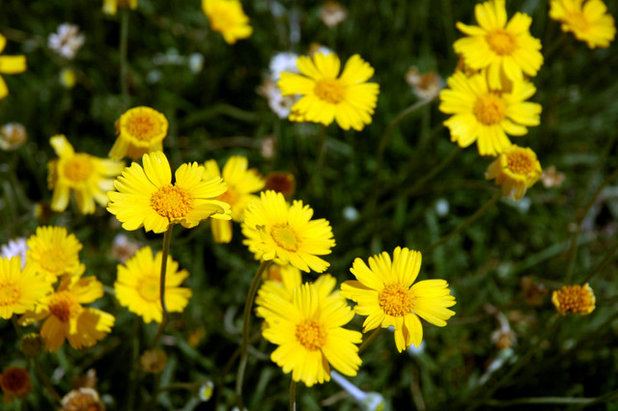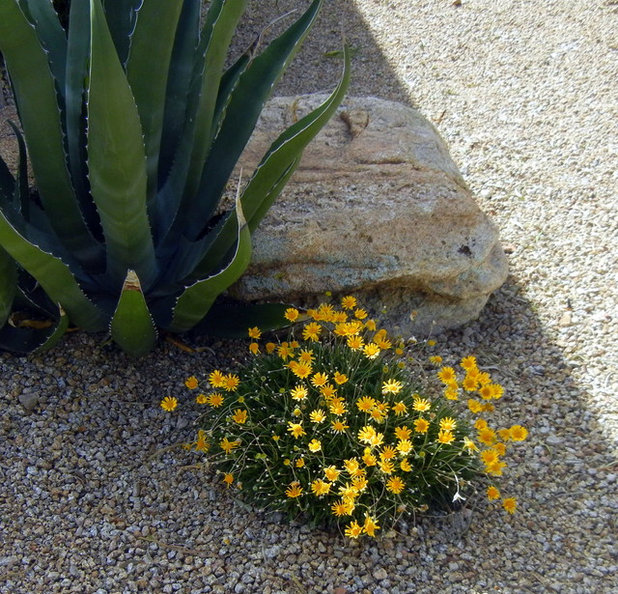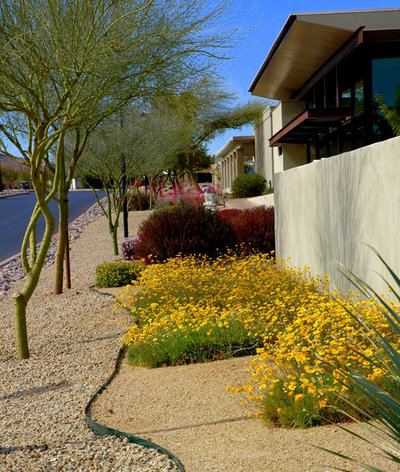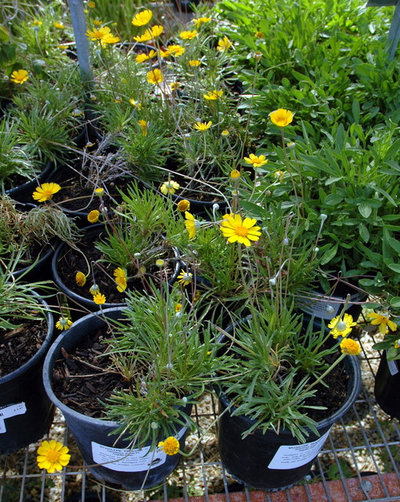The sunny flowers of angelita daisy (
Tetraneuris acaulis)
will brighten any landscape, but if you look beyond the pretty flowers of this Southwestern native, you will find that it packs a few surprises. Angelita daisies thrive in the hot temperatures of summer and handle the cold of USDA climate zone 5 just as easily. If you need a colorful perennial along a pathway, by a pool or in a container, angelita daisy can fill that need. And as if that weren't enough, this tough little perennial flowers year-round in zones 8 and above, making it a great addition to almost any garden.

Noelle Johnson Landscape Consulting
Botanical name: Tetraneuris acaulis (formerly
Hymenoxys acaulis)
Common name: Angelita daisy
Origin: Native to the American Southwest
USDA zones: 5 to 9 (find your zone)
Water requirement: Low
Light requirement: Full sun
Mature size: 1 foot tall and wide
Tolerances: Drought tolerant but does best with weekly watering
Seasonal interest: Yellow daisy-like flowers appear throughout the year in zones 8 and above. In zones 5 to 7, it will go dormant in winter.
When to plant: Plant from container plants in fall or spring.

Noelle Johnson Landscape Consulting
Distinguishing traits. Yellow 1-inch daisies are borne above dark green, grass-like foliage, forming a neat and compact perennial. This tough little plant is a workhorse in the garden. Blooms appear throughout the year in low desert regions, with most flowers appearing in spring. In higher elevations angelita daisies will stop flowering in winter, but they will resume blooming once the weather warms in spring.

Noelle Johnson Landscape Consulting
How to use it. Angelita daisies are extremely versatile in the landscape and look best when planted together in masses of three or five. Dress up a lonely boulder by planting three angelita daisies toward the side, or plant groups along a winding pathway.
Because yellow-flowering plants help the other colors in your landscape pop, angelita daisy looks great paired with succulents such as
agave and
purple prickly pear (
Opuntia violaceae var
santa-rita,
zones 8 to 11)
. Other options include planting it with firecracker penstemon (
Penstemon eatoni,
zones 5 to 9)
or in front of
Baja fairy duster (
Calliandra californica,
zones 9 to 11)
.Need a yellow-flowering perennial for your container garden? Angelita daisies do great in pots and are equally at home by a swimming pool.

Noelle Johnson Landscape Consulting
Planting notes. Angelita daisies are very low maintenance and have a few basic requirements to help them look their best: well-drained soil, full sun and supplemental water. Don't worry about fertilizer; they do best without it.
This Southwest native looks best when the flowers are sheared back every couple of months, which increases the amount of new flowers.
Angelita daisies can handle areas with full, reflected sun. Hardy to -20 degrees Fahrenheit, they will make themselves at home in almost any landscape and add beauty throughout the year with very little fuss.
More Houzz guides to yellow flowers





